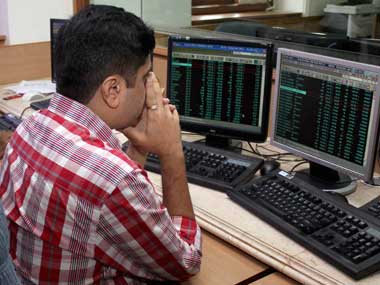The stock markets tanked by 500 points at the first signs of a BJP defeat in Delhi. While today they appeared to gather courage, clearly the robust confidence of the January contract is missing. To be sure there are a bunch of reasons that has weighed on the market. For one, crude prices after continuously plumbing unbelievable depths for three months, have bounced back by 10% in each of the last two weeks. Secondly, and more importantly, the third quarter earnings have been way more than a one-off disappointment.In fact only a one off result has surprised positively. Thirdly and following from the previous two, FIIs have been net sellers for practically all of February and although, the selling has been moderate it has totaled over half a billion dollars in ten days. Yes the bulls have by no means thrown in the towel. But there are reasons to believe their resolve would have weakened. The resounding victory of the AAP, the markets fear, may dent Narendra Modi’s reform momentum. There is no way of knowing Mr Modi’s mind for sure. Various factions in the BJP can react to the AAP victory in various ways. . The nationalist-socialist faction may read the AAP victory exactly as the Congress read the BJP’s defeat after its “India shining” campaign in 2004—that the masses have rejected the pro business thrust of the BJP and the government should hence revert to pro poor policies such as more subsidies. The market may well worry that this view could sway Modi, especially because the AAP is widely seen as having won on account of its promise of 50% cheaper power, free Wifi and rightful access to water. It is this set in the market that believes the pre-budget rally is over, or that if there is one, it would be the best thing to sell into. [caption id=“attachment_2029249” align=“alignleft” width=“380”]  PTI image[/caption] I think it is unfair to believe Narendra Modi would be so naive as to change his policies. He has been a two-term chief minister of a state which he guided to tangibly better standards in those years. He was also the brain behind a most well thought out and executed election strategy resulting in the biggest landslide victory in India in 26 years. I doubt he will buckle under one defeat. There are hardly any elections until October. And even in Bihar the ruling party is making sure, the BJP won’t have to do much to win, but simply desist from anything stupid. Chances are, therefore Modi will stick to what he thinks is the best prescription for growth without being distracted by the Delhi mandate. But is that enough to cheer the markets? I doubt it. Even if Modi concentrates on economic growth with the best of intentions, the markets are worried that his problems are far from over. The third quarter earnings are disastrous for a whole host of sectors - metals, infrastructure, capital goods. A series of earnings downgrades have been the order of the day. The bank earnings are revealing a malaise deeper than what the markets, the government or the RBI were prepared for. . Unofficial estimates of restructured loans are at Rs 15 lakh crore. If half of these turn bad, the total bad loans may well be close to 20% of the banking sector’s loan book. That’s what one calls a systemic problem. How can the banking sector lend under such circumstances especially with little additional capital coming in? And once the cash stops, things can deteriorate even faster. In May of 2014, the markets were betting on an over 10% earnings growth this year and a 16% growth next year. This year’s earnings growth have now been scaled down to 7% and even on this low base, many think next year’s 16% needs to be scaled down. Are the markets cheap even at 8,300? That should be the question that should worry the markets more than the impact of AAP on the budget. The bigger worry: Are the economy’s problems too intractable to be answered in one budget or even in one year?
Are the markets cheap even at 8,300? That should be the question that should worry the markets more than the impact of AAP on the budget. The bigger worry: Are the economy’s problems too intractable to be answered in one budget or even in one year?
Advertisement
End of Article
Written by Latha Venkatesh
Latha Venkatesh is the Banking and Commodities Editor at CNBC TV-18. As a key anchor with the channel, Latha is a keen observer of the monetary policy space. She has kept close watch on the Reserve Bank of India’s policy formulations and developments in the banking industry. She also tracks money market and macroeconomic trends see more


)

)
)
)
)
)
)
)
)



